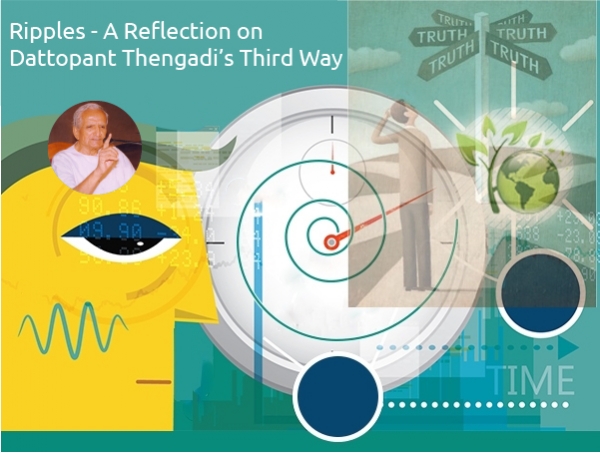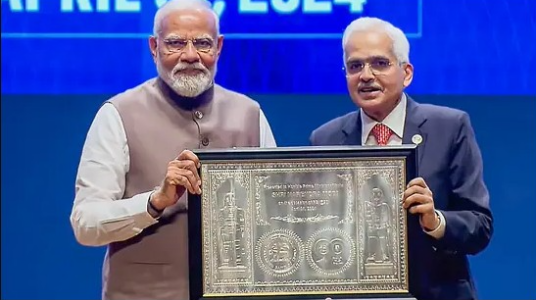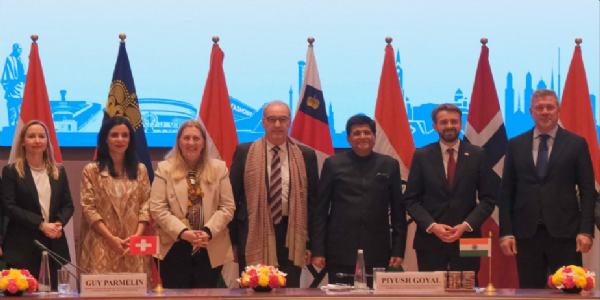Ripples : A Reflection On Dattopant Thengadi's Third Way - Part 2
Many societies have different models evolved depending upon the different conditions, cultural backgrounds. No two societies can fully adopt the same course for their problems.
Total Views | 155
I have been reflecting in my own way on Dattopant Thengadi Ji's Third Way. I present these small "ripples" that it has caused in my mind in a series. I am glad it has found its resonance in many thinking minds alike. I hope the readers have read the earlier article in the series before moving ahead.

Also Read : Ripples : A Reflection On Dattopant Thengadi's Third Way - Part 1
Dattopant gives a detailed account of the problems faced by our society. They are more social than economic in nature he states. He covers almost all the types of serious problems, including corruption too. He enumerates the implications of these on the social, moral and institutional level. And then he explains some of his basic convictions before the problems are dealt with.
1) Western way of thinking is not the only meaning of development and modernisation.
2) Our society need not follow their models. No social models are necessarily universal in nature like laws of nature. Many societies have different models evolved depending upon the different conditions, cultural backgrounds. No two societies can fully adopt the same course for their problems. Theories like socialism may have succeeded in dealing with European issues but they cannot be blindly relied upon.
3) He doesn't discard everything that is western. He states that knowledge and truth are universal in nature ,especially in case of science ( natural ) and technology. But same is not the case with philosophy, religion ,ethics or ideology. But to him blind Imitation would ' indicate bankruptcy of our genius or acute inferiority complex. We all have witnessed it.
4) The socio- economic order envisaged by socialism would bring the consequences like 'social disharmony and disintegration. We are certainly equipped to deal with injustice or inequ or exploitation in our way ingrained in indigenous way.
5) After the phase of industrial revolution came socialism on the horizon to be able to deal with the problems created. The affluent countries needed such theory but applying it theory where the societies haven't reached the similar stage is not a rational way. Similar model cannot be thought of in the different conditions.
6) He expresses faith in indian way of thinking and dealing with the problems thought may not be palatable to many.
7) He has faith in the 'capacity of National genius in evolving a socio- economic order' suitable for our society. He refers the concept of integral humanism by shri Deendayal ji.
8) It is expected to use indigenous terminology to describe ultimate national goal. Indian languages and culture are 'rich' as well 'powerful' sufficiently to provide the correct terms which convey the expected meaning. Borrowing anything from west is not required
The 'Sanatan Dharma' as a concept is explained in the next write up of the 'ripples '
Bharati Web








